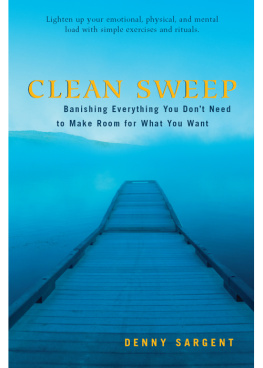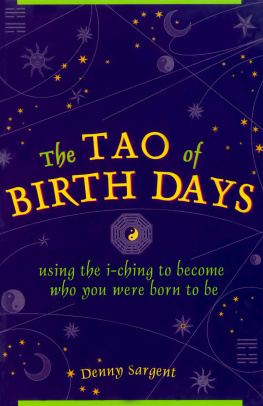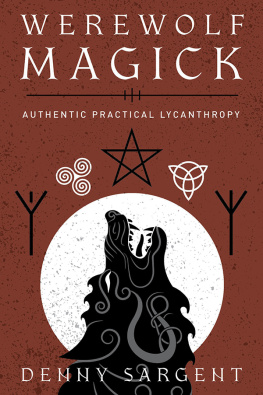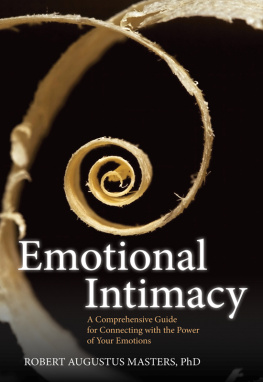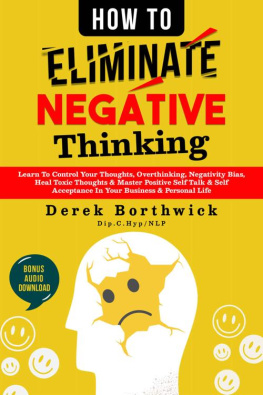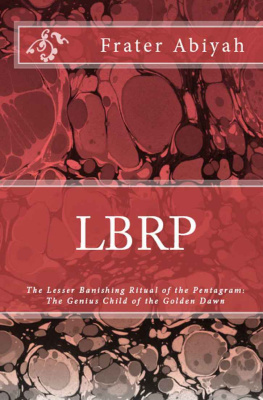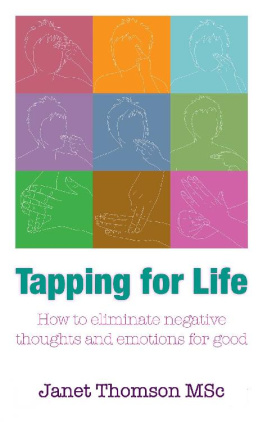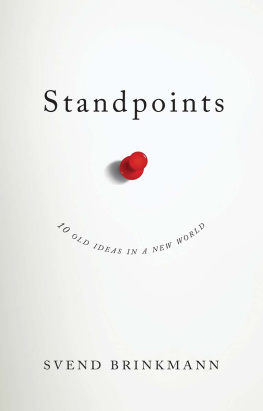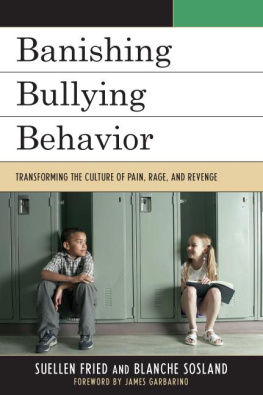
To my late father, Clement Denny Sargent, who taught me about Letting Go and who bestowed upon me early on the gift of Laughter, the universal banisher!
First published in 2007 by Conari Press,
an imprint of Red Wheel/Weiser, LLC
With offices at:
500 Third Street, Suite 230
San Francisco, CA 94107
www.redwheelweiser.com
Copyright 2007 by Denny Sargent.
All rights reserved. No part of this publication may be reproduced or transmitted in any form or by any means, electronic or mechanical, including photocopying, recording, or by any information storage and retrieval system, without permission in writing from Red Wheel/Weiser, LLC. Reviewers may quote brief passages.
ISBN-10: 1-57863-388-5
ISBN-13: 978-1-57863-388-3
Library of Congress Cataloging-in-Publication Data
Sargent, Denny, 1956
Clean Sweep : banishing everything you don't need to make room for what you want / Denny Sargent.
p. cm.
1. Simplicity. 2. Self-help techniques. 3. Spiritual life. 4. Self-actualization (Psychology) I. Title.
BJ1496.S255 2007
646.7dc22
2007002571
Cover and interior design by Maija Tollefson
Typeset in Granjon
Cover photograph Cindy Kassab/Corbis
Printed in Canada
TCP
10 9 8 7 6 5 4 3 2 1
www.redwheelweiser.com
www.redwheelweiser.com/newsletter
Contents

List of Banishings Practices

Introduction

We in the Western world have excelled in amassing wealth and goods, opportunities and responsibilities, technologies and information. Things, ideas, and sources of stress overwhelm us and overflow our lives, numbing our senses. We are constantly driven by a consumer impulse that simultaneously propels and supports our economy while imprinting endless desires and needs in our minds. We must have the newest gadget, the newest kind of food, and the newest information. As a culture we are driven to acquire, amass, get, use, devour, taste, and try.
As we want and amass more, we must work more. We have to do these things at the same time, though logic tells us that this means doing none of them with full concentration. There are too many errands, too much work, too many obligations, and not enough time. We are so deeply immersed in this frenetic ocean hyperactivity that we think it is normal.
A majority of people know that something is out of kilter, but most feel powerless to change. What would bring balance, control, and peace back to your life?
Those of us who travel outside the industrialized West (or even in some of its saner, quieter corners) know that most people in the world do not simply take and take. Many cultures have a sense of balance, an idea that one takes and then gives, that things are released so that other things can be gained. Just as day and night, activity and rest, consuming and excreting are all natural processes, so too in most cultures is giving and taking a natural cycle.
We in the west are very good at taking, consuming, hoarding, devouring, but we have forgotten how to let go, how to eliminate. We need to remember the basic concept of releasing and renewing.
We need to relearn how to banish.
What Is Banishing?
The Oxford English Dictionary says to banish means to get rid of; drive away. An alternate definition is to expel, as if by official decree. The root word, ban, indicates a much more primal and magical action. It means to forbid something, but in an active mannerthat is, to exclude or consciously remove a person or action from society or a specific place. It also means to speak.
Words are power. If you know the name of a thing or person, then you have control over it, you have power to manipulate it. All magical processes and shamanic rituals center on this idea. In many spiritual cultures, a priest, shaman, or other magic maker derives power from knowing the hidden names of things. For example, a shaman can call deer to the hunters by knowing the secret name of the animal. A priest can bring a god or spirit to a ritual by uttering words of power, and wizards conjure spirits by knowing their true names.
Banishing assumes that we all have the power to speak with authority, to take control of aspects of our reality by first clearly conceptualizing them and then uttering a directive to forbid, order, or prohibit itto ban it from our reality by saying its true name or essence. In other words, by speaking or commanding, by conceptualizing we have the power to get rid of somethingto send it away and keep it away.
To banish something, you must be able to name itto get a hold of it and visualize it, to know it and thus have power over it. The fastest way to do this is to objectify or personify it. You may think of the thing you want to banish as a negative force, energy, or even an entity, such as a demon, depending on your belief system. To me, for example, alcoholism is a demon. Chances are that you have a number of demonshurt, stress, painaffecting your physical, emotional, and mental realities that you would be better off without. Banishing is casting out those demons.
This book brings the idea of banishing into a simplified modern form. For our purposes, banishing means identifying people, things, forces, feelings, thoughts, or ideas that are negative or harmful and, through the strength of will and positive power (love), commanding that these things be removed.
As I wrote my previous books and articles, and traveled extensively, I became fascinated with the differences between philosophical religions and models and natural or organic models. With the help of people in Nepal, Costa Rica, Japan and many other places, I began to see that it wasn't just our removal from nature and the influence of Nature that affected us, it was the abandoning of the very basic biological model itself in our cultural hyperactivity.
The model is very simple: Any biological entity, from a single-celled organism to a human being, goes through processes that are cyclic throughout its lifetime.
- Food is consumed, digested and waste is excreted.
- Cells are created, mature, die, and are replaced with other cells.
Over the course of about six years, every cell in our body is replaced! Yet this is done in such a balanced manner, cell for cell, that we don't notice. If a cell overreplicates, copies itself too many times, it is an aberration and becomes a disease. We call it cancer. If an organism consumes but does not fully or completely excrete the waste, the organism becomes toxic and dies. Any botanist or biologist will be happy to spend hours telling you what a magnificent and endlessly complexly balanced dance this is and how even the slightest imbalance to an organism in this input/output, gain/loss system can throw the whole organism out of whack, leading to disease and multiple problems.
If you eat more than you consume, you get fat. This leads to a number of health complications that are quite well-know to everyone.
If you consume toxins or things containing poisons but do not fully eliminate waste and toxins, you slowly poison yourself. Again, everyone knows this.
Next page
